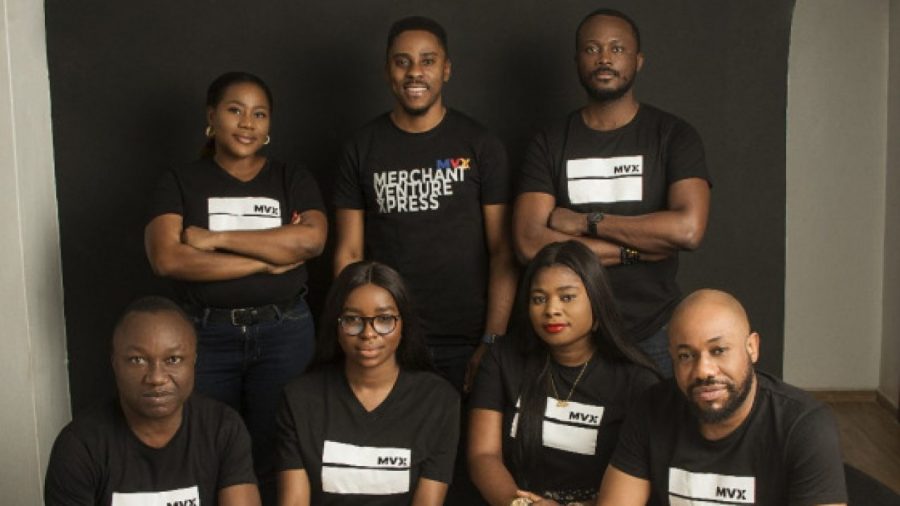MVX Nigeria Secures Fund to Simplify Cargo Shipment in Africa
One sector of business where the adoption of technology seem to have arrived late in the African continent is shipping/logistics but there are emerging evidence that it is gradually catching up, especially as the moving parts of the sector are being digitized to provide a more agile and democratic access to maritime resources, especially the truck, deep ocean containers and vessel procurements.

Championing this adoption in Nigeria is the MVX, a startup actively playing in this sector which recently raised a $1.3m seed round to scale its operation and expand its services across the continent. The funding round was supported by venture capitalists and angel investors such as Kepple Africa, The Continent Venture Partners, Founders Factory, Launch Africa, and Capital Oak. Some angel investors in the U.S, Japan, Nigeria, and South Africa also participated.
Read also:SMS Solutions Could Be Essential for an Inclusive Business Strategy
The CEO of MVX Tonye Membere-Otaji said that he got his inspiration to dgitalise the system six years ago while working in the maritime industry and having noticed the absence of a vessel marketplace in Africa and started nursing the idea of building one. But it remained just an idea for a long time because of the lack of the right team to build with.
Finally in 2019, four years down the line, the idea came alive and MVX was launched alongside Oluwatobi Amusa who serves as the CTO, following a $100,000 pre-seed from Oui Capital, Neon Ventures, Zircon marine, and some angel investors.
“I decided to figure out how to solve that problem of finding vessels because there were too many intermediaries, which made processes difficult,” Membere-Otaji was quoted as saying.
Read also:South Fintech Firm Callpay Acquired At A Valuation Of Over $6.8m
Initially, the startup was launched as a vessel marketplace called MVXchange where requests and matching of Offshore Vessel Support (OVS) chartering are made. But in March last year, the business pivoted into a digital freight booking platform, helping cargo owners find deals to move containers across Nigeria, MVXtransit.
According to the CEO, the uncertainty of the oil price and COVID-19 pandemic were the major reasons for the pivot.
“We couldn’t see ourselves doing vessel chartering for the long term because the demand for fossil fuels will definitely reduce over the next few decades. We wanted to do something scalable, something that was impactful, and something that we could be proud of in the next 20 years,” he added.
In April, the company introduced another product offering called MVXpay, a finance and payment solution to provide trade finance for freight operators. It then rolled both MVXtransit and MVXpay into a single product to form MVX.
This is a brilliant way of merging both fintech and trade into one product. For instance, a merchant can request for credit to move shipments from Africa to America on the MVX. Then MVX will pass the request over to its financial partners, who provide the customer with funds provided the minimum requirements are met. MVX then takes care of the shipment and delivers it to America.
Read also:SnapScan Launches Upgrades Platform for Peer-to-Peer Payments
Though MVX charges a commission for the services provided, including trucking, warehousing, shipping, and cargo stuffing, that’s a complete trade cycle, done on a single platform.
“We make it easy and convenient for businesses. Instead of trying to do everything themselves, which can be chaotic and cause distraction from their core businesses, we handle everything because we have all these service providers in one platform. So as shippers work with us, MVX works with like seven to 10 other service providers,” said Membere-Otaji.
Satoshi Shinada, the general partner at Kepple Africa, said, “The trade sector in Africa is one that we believe is ripe for disruption. MVX is building a game-changing technology and platform to revolutionize how businesses in Africa move shipment and trade around the world.”
The startup which is presently operating in Nigeria, Kenya, South Africa, Ghana and Rwanda, says it has processed more than 300 shipments this year and plans to end with 1,500. The CEO also claims that the company has surpassed its 2020 revenue and traction numbers.
From MVXchange in 2019 to MVXtransit in 2020, to MVXpay in 2021, and now to MVX. One thing is clear, this company will continue to blend and move with the ever-changing market as fast as it could to drive relevance solutions and profitability. And with funding like this and backers like Kepple, it would be able to do just that, comfortably.
Kelechi Deca

Kelechi Deca has over two decades of media experience, he has traveled to over 77 countries reporting on multilateral development institutions, international business, trade, travels, culture, and diplomacy. He is also a petrol head with in-depth knowledge of automobiles and the auto industry




